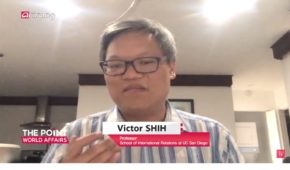 |
| Victor Shih |
The New York Times:
For now, Tianjin can continue to borrow for projects like the Juilliard campus because it has a powerful patron in Beijing, said Victor Shih, an associate professor at the University of California, San Diego, and an expert on the Chinese economy. That official, He Lifeng, was once the No. 2 Communist Party official in Tianjin. Mr. He now heads the central government agency that approves all major development projects, meaning he can authorize banks to lend more money to Tianjin.
“If the political will collapses for the Binhai area, then the bank loans will begin to dry up and the whole area is in trouble,” Mr. Shih said.
Officials at the National Development and Reform Commission, the agency where Mr. He works, did not respond to a request for comment.
Victor Shih is a speaker at the China Speakers Bureau. Do you need him at your meeting or conference? Do get in touch or fill in our speakers' request form.
Are you looking for more financial experts at the China Speakers Bureau? Do check out this list.











